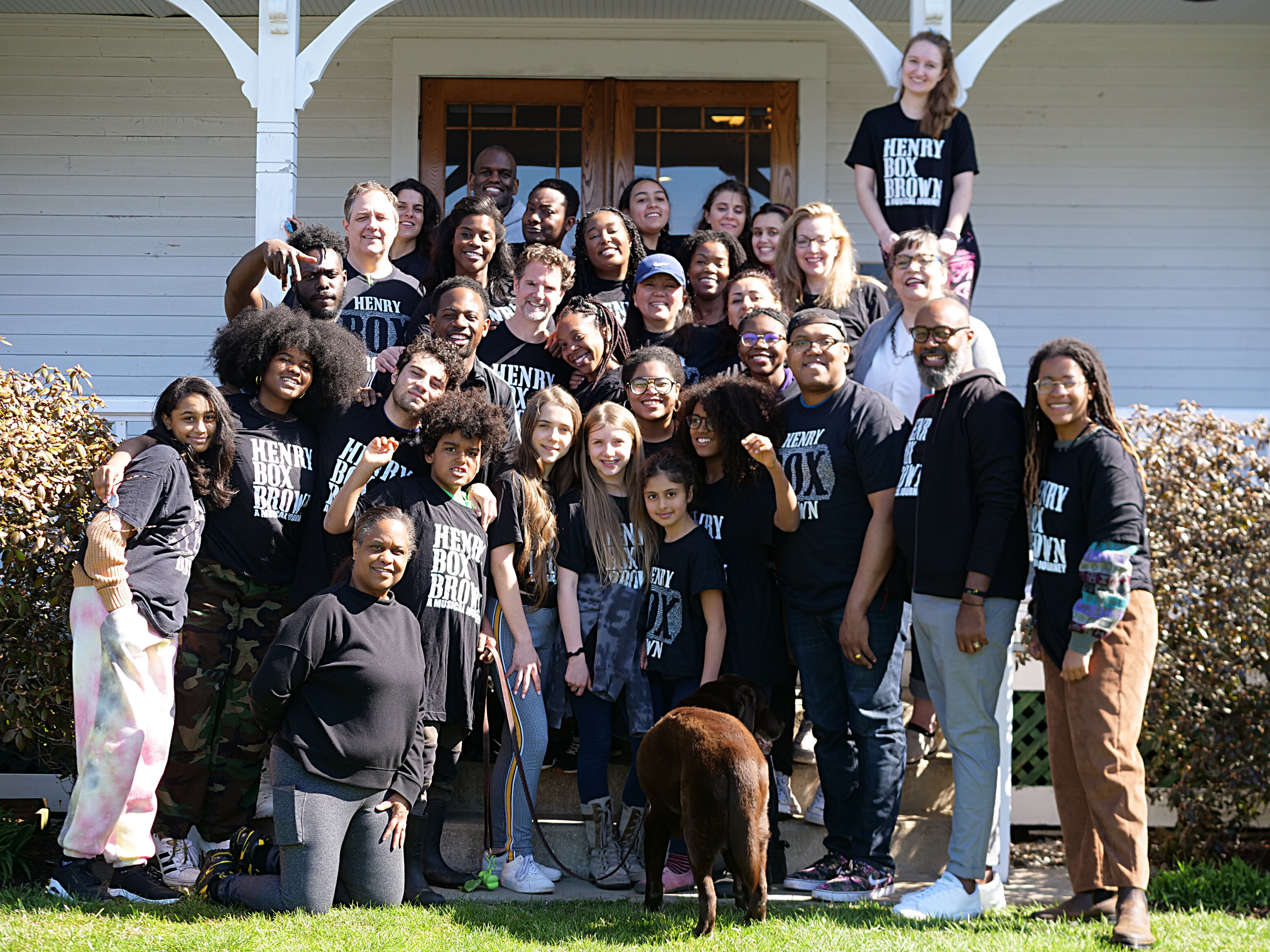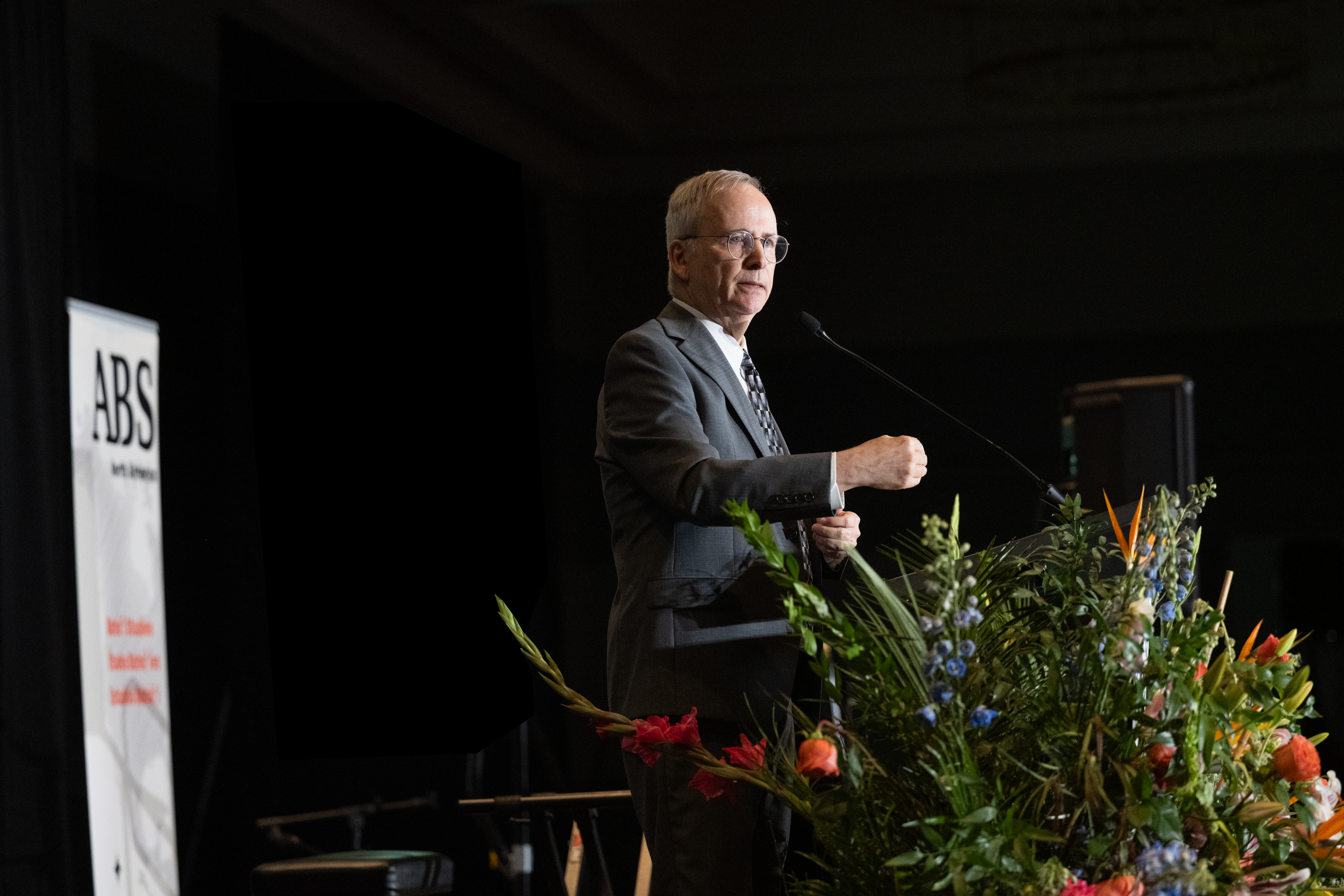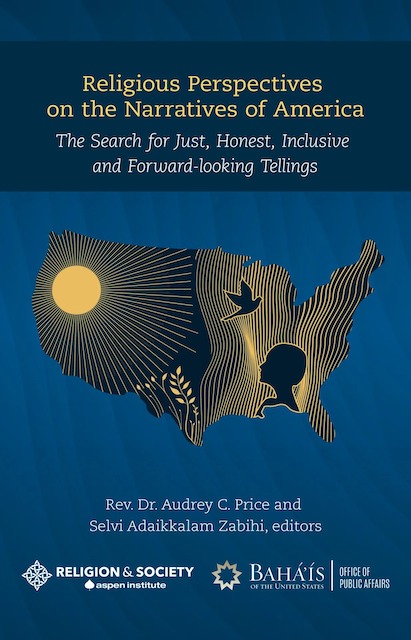
Interfaith practitioners cite keys to effective involvement

Baha’is who engage with other people of faith on the local and national levels say there are definite keys to effective interfaith involvement. Distilled from their input are:
- Show up. Actively participate, volunteer, and support local interfaith activities and initiatives.
- Underlie all interfaith interactions with an attitude of service, humility and gratitude.
- Create authentic relationships. Spread the love.
- Come together as community members from various traditions, not as representatives of those traditions.
- Practice active, respectful listening.
- Share information naturally about the Baha’i Faith as it comes up. Let your character be the best teacher of what the Faith is about.
- Find things in common that can be shared by the adherents of various traditions.
Bill Ahlhauser, a Baha’i in Whitefish Bay, Wisconsin, who serves alongside his wife, Ellen Parmelee, Dick Smith and other Baha’is in the Interfaith Conference of Greater Milwaukee and its Amazing Faiths dinner dialogues, emphasizes the last two points in his interfaith interactions.
“Convey points of unity: belief in one God, love for God, prayers, fasting, marriage, faithfulness, education of children, good deeds, the Golden Rule,” he advises.
“Since the others involved are willing to invest in interfaith activities (specifically with Baha’is), they probably already believe at least somewhat in the oneness of humanity, so there’s that, too.
“Conveying these similarities may reduce the back-of mind concern that the Baha’i Faith is a cult or otherwise wacky. We’re a grown-up religion, and generally what they love in their own religions we love in our religion, too.”
At the same time, says Ahlhauser, it’s important to clarify differences.
“First, Baha’u’llah as the Prophet or Messenger of God we follow; second, principles that can be sourced to His immovable commitment to oneness.”
These principles, he says, include abhorring backbiting, avoiding picking sides, honoring independent investigation of truth by each person, calling for communities to become just and concerned for all, utilizing consultation, celebrating diversity, and in general, learning.
“That last ‘learning’ reference is because much interfaith focus seems to assume that faiths and differences among them are cultural, so ‘interfaith’ means learning about another’s culture,” he says.
“The Baha’i Faith doesn’t have a culture as such, and might be said to be developing a culture around continuous learning and around diversity.”
Adds Negar Abay, gender equality and advancement of woman representative at the Baha’i Office of Public Affairs, “The one aspect that I think we try to consider when we participate in interfaith activities is not just to speak to the unity of religions — having religions get along, support each other, etc. — but to really enter the conversation with an understanding of the oneness of religion.
“So, for example, when I participate in interfaith discussions on the equality of women and men, I try to talk about the role that religion can play in a way that allows us and every one to contribute to deepening understanding on the distinctive contribution of religion, and not just a Baha’i perspective on x, y, and z added on to the Jewish, Muslim, Christian etc., perspective.”
Abay acknowledges this can be difficult. “It is not how the discussion is usually framed,” she says. “But it is one way we try to reorient the thinking when possible.
“We are also learning, as circumstances allow, to introduce the idea of religion and science as systems of knowledge and practice that belong to all mankind and can inform how we address the challenges confronting us,” says Abay.
This approach requires ongoing conversation because many are not used to thinking of science or religion that way, she says, “but it is something we try to learn about.”
Brad Corbin’s take on interfaith engagement is that “if you don’t care about them why should they care about you?”
“I have taken a view of the long term. Relationships and trust take time,” says the longtime participant in Reno, Nevada, interfaith efforts through the Nevada Interfaith Association.
It’s important, he says, that “I am known as a Baha’i and I project Baha’i ideals by my actions, both socially and in business.
“When I meet others of faith and have shared how God, faith and prayer have helped us in our daily challenges, personal bonds have been created that go beyond the framework of ‘religion’ and enter the realm of spirit.”
In other words, actions speak louder than words, says Corbin. “The takeaway becomes that they feel ‘he’s a good guy, he’s honorable, I guess the Baha’i Faith is OK.’”





